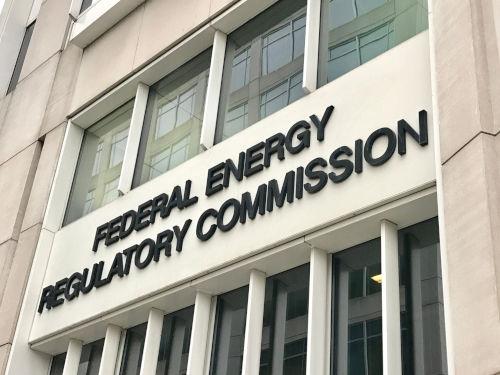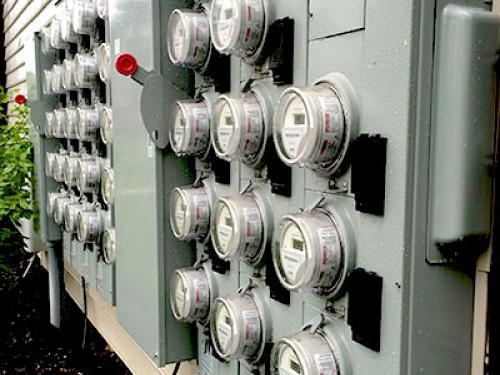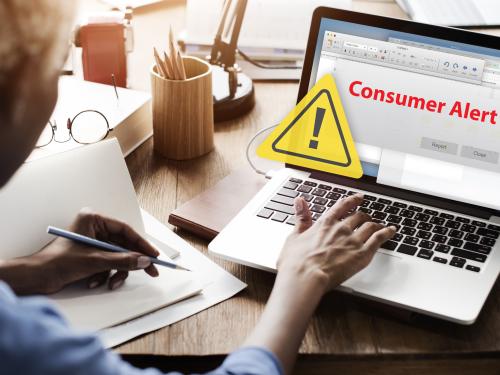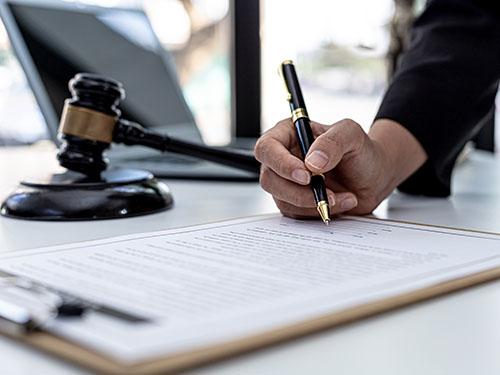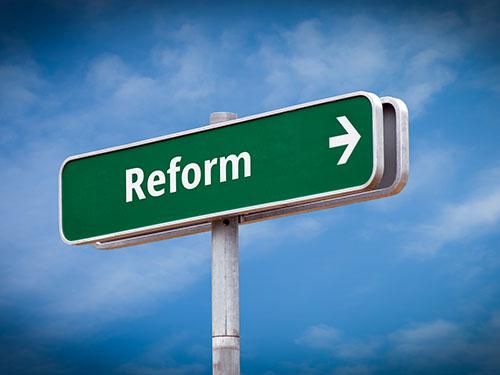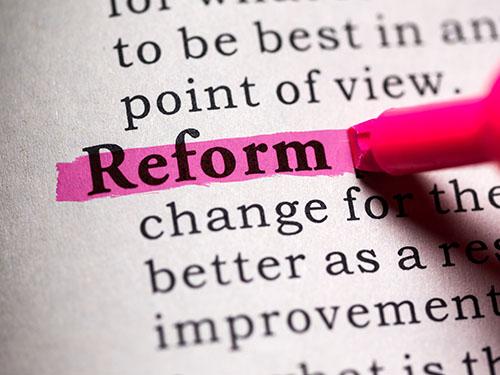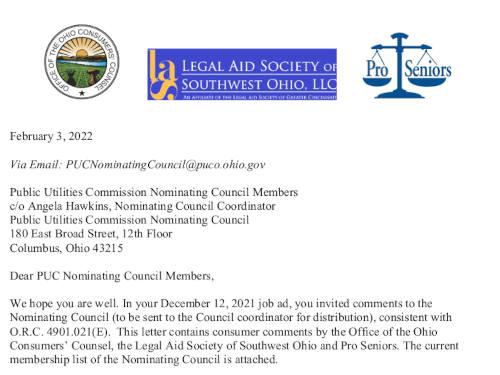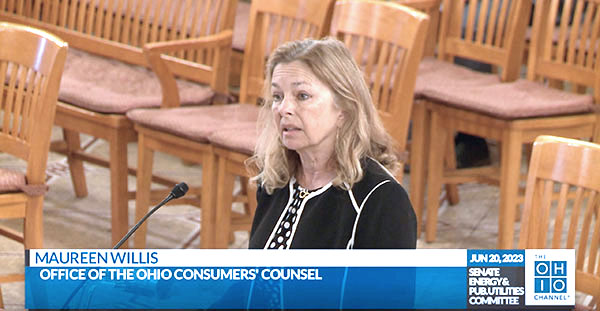
Advocating for Consumers
Laws enacted by the Ohio General Assembly shape the standards for protection of Ohio consumers regarding their utility services. The Consumers’ Counsel advocates for consumers in the legislative process. This advocacy includes presenting testimony in legislative hearings. Here is a link to OCC testimony before the Ohio General Assembly.
Legislative Services
OCC also serves as a resource for legislators on issues affecting utility consumers. Elected officials and their staff members may contact our Legislative Liaison listed on our Media Contacts page with questions about utility services.
How to make your voice heard
Our work is more effective when individual consumers make their voices heard. The Office of the Ohio Consumers’ Counsel advocates on behalf of Ohio’s residential consumers in the state legislature, at the Public Utilities Commission of Ohio and other state and federal agencies.
Make your voice heard at the PUCO
Did you know you can express your concerns to those making decisions about the utility rates you pay? There are several ways to make your voice heard at the Public Utilities Commission of Ohio (PUCO). Learn more about how to Make Your Voice Heard at the PUCO.
Contact your elected officials
The first step to taking action is identifying who represents your area on the state and national levels. Click below to find out who your state and national elected officials are and learn How Utility Legislation Becomes Law in Ohio.
- State Elected Officials
-
Each area of the state is represented by one state representative and one state senator.
Governor of Ohio
- Governor Mike DeWine governor.ohio.gov or call 1-614-466-3555.
State Representative
- To find your state representative visit the website of the House of Representatives at: www.ohiohouse.gov or at www.legislature.ohio.gov.
State Senator
- To find your state senator visit the website of the state Senate at: www.ohiosenate.gov or at www.legislature.ohio.gov.
- National Elected Officials
-
Each State is represented on the national level by two U.S. Senators, and by a number of U.S. Representatives based on the population of the state. In Ohio, we currently have 18 U.S. Representatives that represent specific areas of the state.
To find your U.S. Representative go to:
- The US House of Representatives' website and enter in your zip code.
Every Ohioan is represented by both of Ohio’s U.S. Senators:
- U.S. Senator Bernie Moreno: moreno.senate.gov
- U.S. Senator Jon Husted: husted.senate.gov
President of the United States:
- President Donald J. Trump: www.whitehouse.gov
- How to call your legislator
-
Calling your legislators is one of the easiest and quickest ways to make an impact.
You can find the phone number for your State Representative by visiting the website of the House of Representatives at: www.ohiohouse.gov and the phone number for your State Senator by visiting: www.ohiosenate.gov or both at www.legislature.ohio.gov.
Tips for calling your legislator
Calling your legislators is easy. Here are a few tips to ensure your success:
Ask to leave a message for the legislator
Very rarely will you actually speak to the legislator who you are calling. More likely you will speak to an aide who should pass your message on to the legislator. When calling a legislator, you can either ask for the legislator to call you back or leave a message for the legislator.
Keep the call short and sweet.
Each call should take only a minute or two. Make sure to include in your message:
- Who you are (name and occupation, if relevant);
- Why you are calling (if you know the number of the bill, you should include it. If not, make sure you state what issue you are calling about and your position on the issue); and
-
What you would like the legislator to do (i.e. vote for or against a bill).
Speak slowly and clearly
It is likely that the person who answers the phone has been taking lots of messages all day long on a variety of issues. It is unlikely that they are an expert on the issue that you are calling about. You will have a better chance of making an impact if you speak slowly and clearly so the legislator’s aide can communicate an accurate message to the legislator.
- How to write your legislator
-
Writing a hand-written letter to your legislator can be one of the most effective ways to communicate a problem or your position on an issue to a legislator.
Consumers can mail a letter to their state representative’s attention by using this address:The Honorable (fill in the name of your state representative)
77 South High Street
Columbus, OH 43215-6111Consumers can mail a letter to their state senator’s attention by using this address:
The Honorable (fill in the name of your state senator)
Statehouse, Senate Building
Columbus, OH 43215To write a letter to your U.S. Representative or U.S. Senators, contact your national elected officials.
Tips for writing an effective letter to your legislators
Include your contact information in the letter:
Legislators should respond to your letter with their position or thoughts on the issue you write about. Be sure to include your full name, address, e-mail and phone number in the letter so they can respond to you.
Keep the letter short and sweet, but make sure to include the essentials:
- Who you are (name and occupation, if relevant);
- Why you are writing (if you know the number of the bill, you should include it. If not, make sure you state what issue you are writing about and your position on the issue); and
- What you would like the legislator to do (i.e. vote for or against the bill).
Send a letter to all relevant legislators
Writing the initial letter is always the hardest. Once you have one written, make sure to write the same or similar letter to your each of your relevant state legislators and, if appropriate, national elected officials as well.

